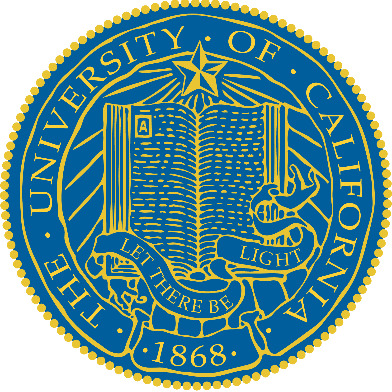Have you ever used an Apple product? Have you ever seen pictures of the surface of Venus or Mars? Have you ever watched The Godfather trilogy? Have you ever read Slouching Towards Bethlehem, The Year of Magical Thinking, Salvador, or The White Album? If you’ve answered yes to any of these questions, then you’ve benefited from the kind of contributions—in the arts and in the sciences—that the University of California makes every day to its state and to the nation. Apple was co-founded by Steve Wozniak; planetary exploration pictures are made possible by the Jet Propulsion Laboratory, whose director is Charles Elachi; The Godfather was directed by Francis Ford Coppola; Slouching Towards Bethlehem was written by Joan Didion; all four of these innovators and artists are UC alumni.
But the University of California is now being slowly dismantled, and its mission of public education perverted, thanks to the budget cuts it has had to absorb over the last few years. My friend and colleague Tom Lutz, who teaches at UC Riverside, and who was, until last week, the chair of the Creative Writing program, has written a letter to explain what the cuts mean to you, the average Californian (or the average American.) With his permission, I am posting it on this page. I urge you to read it and to distribute it widely:
Dear colleagues and students,
After a year and a half as Chair of the department, I am stepping down. Professor Andrew Winer will be taking my place, for which we should all be grateful.
As my last act as Chair, I would like to share with you my sense of the gravity of the situation we face. I spent most of my academic career doing what most of us do—teaching, writing, reading graduate applications and theses, having office hours, reading in my field, doing research. I didn’t pay much attention to the University and its administration. None of us have that luxury anymore. Budget cuts after budget cuts after budget cuts have left us all painfully aware of how the sausage is made, or not made.
Having served in administrative posts for most of the last five years, I have come to know the budget issues very well. We are now past the tipping point. We are on a rapid downhill slide that will have profound effects for our state, our families, our country, and our world.
In the space of less than a single lifetime, the University of California, Riverside went from being a small agricultural experiment station to being one of the top 100 universities in the world. An incredibly dense and elaborate web of specialists across all fields of scholarship, science, and the arts was developed, and it took enormous efforts by thousands of people over those years to make it happen. In less than the four years it used to take to graduate, it is being destroyed.
Our department is a great example of the breadth of vision and dogged effort that has made Riverside the exceptional place it has been. There are other creative writing programs in the country, but not a single one anywhere with the range across genres and fields, with the breadth of knowledge in world literatures, with the diversity of voices, methods, and styles that we have. And there is not another creative writing program anywhere—and certainly none with our caliber of professors—that is more truly dedicated to its pedagogical mission at every level. The faculty at Princeton is perhaps a bit more famous, but undergraduates there never meet them, much less have access to them in, before, and after class. I have now taught at every kind of school—fancy elite universities, small colleges, Big 10 universities, art schools, and universities abroad. I have never been part of a faculty this student-centered, this concerned about the educational experience and future prospects of its undergraduate and graduate students.
Three years ago I was offered a job at USC, which is much closer to my house, more prestigious as an academic address, and was offering me more money. UCR worked hard and did the best it could to match the salary and I stayed. I stayed because I wanted to be part of this project, I wanted to teach a student body that is over 85% first-generation college students, that comes not from the richest families in California but some of the poorest, students that have a much greater likelihood than not of coming from immigrant families and from families that speak other languages as well as English. I wanted to remain part of one of the greatest democratic experiments in history, and certainly one of the few greatest experiments in public education in the history of the human race, the University of California.
If I got that offer today, though, I’m not sure I could turn it down, and, in fact, many people are not turning down outside offers these days. People who have taught here for more than twenty years are now considering going somewhere else, somewhere the future is a bit more certain. These are people who are the best in their field—you don’t get outside offers unless someone thinks you are among the best in your field—and UCR, and the educational experience at UCR, is diminished each time this happens, each time one of the best of our best leaves for a better job. We can’t blame them—they have kids of their own to put through college, they have research projects that require funding, they know that to teach the most complex subjects effectively, they need to run seminars with 15 students sitting around the table, not 150.
The budget cuts of recent years and the ones we know for certain are coming next year mean a gross deterioration of our school. Those faculty who leave for better jobs are not being replaced. Many of you know Yvonne Howard, who has been the chief administrator for our department since it was founded. This year her job was unceremoniously terminated. Staff people and faculty who retire are not being replaced. Next year students at UCR will have trouble getting the classes they need, and many of the classes they get will be crowded beyond responsible limits. Departments are being forced to abandon optimal class-size limits for classes two, three, and five times that size. The library has virtually stopped buying books. We are on a race to become a mediocre university at best, and if the $500 million of proposed cuts to UC turn into a billion dollars, as they are now discussing in Sacramento, we will be over. The billion dollar cut translates into thousands of classes across the system. It means creative writing workshops with 50 students. It means we will cease to be a real university, and will simply become another community-college-level institution at best. Then, maybe, after a few years, with tuition at $25,000 or $30,000 a year, we can begin the slow, arduous build back into a real university.
Why is this happening? Political demagoguery and corruption. Thirty years ago UC received 9% of the state budget and prisons 3%. Now UC gets 3% and the prison-industrial complex gets 9%. The legislature is taking the money that should be used to educate the best of its citizens and using it enrich the people who make a profit from the imprisoning the poorest. The percentage of the cost of higher education provided by the state has been cut in half, cut in half again, and is on the verge of getting cut in half a third time. The people in the legislature understand the value of public higher education—the vast majority of them (in any given year over 80%) have degrees from our state system, and many of them have multiple degrees—all made possible by the legislators who preceded them, and who had more courage. They do not protect the University for a very simple reason: if they do, they will suffer a flow of conservative attacks and Tea Party racism, funded by the Koch brothers and their ilk, the standard price if one stands up for anything that is directly devoted to the commonweal.
In my darkest moments, I think the monied interests working against reasonable taxation are doing so because they consciously, actively seek to make sure we do not have an informed, educated citizenry, the better to extract our collective labor and wealth unimpeded. But such intentionality isn’t necessary. Simple, short-sighted, grab-it-now, bottom-line greed explains their destruction of our culture, without recourse to any dystopian conspiracies.
The only thing that has a chance of turning this devastation around is student activism. We in higher education cannot spend millions of dollars on campaign contributions the way the prison profiteers or the medical and insurance and aerospace industries do, so we need to find other ways to provide a political counterweight. We need to make our voices heard. For you students, your own self-interest should be the catalyst, as you will, no matter what happens this year, have trouble finding the classes you need, much less the ones you want, and the chance you will graduate in a reasonable amount of time is already gone. But you should also think of what this means for your families, your neighbors, your friends, your own kids when they come of age. And think what it means if California reduces its higher education budget to the levels of Missouri or West Virginia—we will become like those places. Because of its education system, a system that, until just a few years ago, has always been considered the best in the country, California has been among the most innovative and significant literary and cultural centers in the country, and because of this education system, too, California has been the economic powerhouse it has been—1000 research and development companies a year are formed out of the UC system, for instance, and four UC inventions a week are presented to the patent office. We had the best educational system because we were willing to pay for it, and our expenditures were among the highest in the nation, too. In a few short years we have dropped into the middle in state spending, and we are fast falling even farther. Only a political movement strong enough to buck the corporate money determining our tax policy can change this downward spiral. Only you can make that happen.
We have been told, from the top, not to expect a return to ‘the glory days.’ This year was not the glory days. This year we already have discussion sections that are not discussions, fewer classes, an exploded faculty/student ratio, decimated staff; we are very far from the glory days. Now that either 500 million or 1 billion additional dollars are getting yanked out of the system, your favorite lecturer will be gone. The class you wanted won’t exist anymore. Your student advisor will have 800 or 1000 students to advise instead of the 300 we all agreed was an absolute maximum two short years ago. This is the end of quality. And why? Because a few very wealthy people are protecting their wealth from taxes, taxes considered reasonable not only everywhere else in the developed world, but considered reasonable in America until the last 20 years.
I hope you get angry. I hope you get active. Call and write your legislators, get out in the streets, take back your university, don’t let yourselves be the last people to have even this chance.
Tom Lutz
Professor and Chair, Department of Creative Writing






